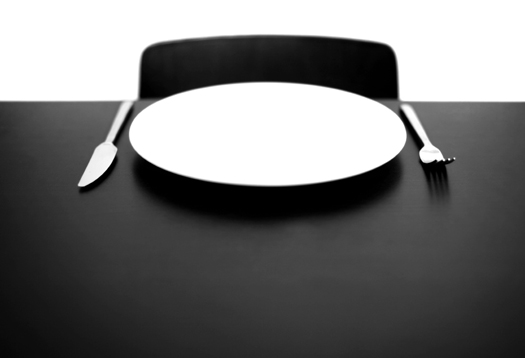
by Fr. Jonathan Cholcher
“Now you shall remember the whole way the Lord your God led you in the desert, to deal harshly with you and test you, to know what was in your heart, whether you would keep His commandments or not.” (Deuteronomy 8:2)
“[F]light and making oneself distant from the causes of evil is a great and excellent help in the ascetic struggle…the labor of vigil and fasting is the beginning of every struggle against sin and lust…so fasting, vigil, and wakefulness in God’s service by resisting the sweetness of sleep through crucifying the body throughout the day and night, are God’s holy pathway and the foundation of every virtue…Just as the enjoyment of light is coupled with healthy eyes, so desire for prayer accompanies fasting that is practiced with discernment. When a man begins to fast, he straightway yearns in his mind to enter into converse with God.” (St. Isaac the Syrian, Homily 37)
The Orthodox way of salvation consists of the triple disciplines of fasting, vigil, and prayer. Only by practicing fasting, vigil, and prayer can we disengage ourselves from fleshly and worldly attachments preventing us from movement toward God. Fasting, vigil, and prayer free us from sinful passions, purifying and transforming our desires, emotions, and thoughts to seek genuine life in God and His kingdom.
- Fasting is the conscious limiting of and abstaining from both the kinds and quantity of foods we eat and drink.
- Vigil is controlled attention before God, usually during nighttime hours, in spiritual reading, Psalms, and other prayers.
- Prayer is the cry of faith from a heart humbled before God, certainly including certain words and gestures (e.g., the sign of the Cross, bows, and prostrations), but meditating on the meaning of the words and gestures to reach a place of quiet listening before God (i.e., prayer of the heart, or noetic prayer).
- Repeating the instruction of St. Isaac, fasting, vigil, and prayer are the beginning of the Orthodox struggle of salvation against sin and lust. As examples, consider the Israelite journey through the wilderness to the Promised Land in the quote from Deuteronomy above.
God led His people out of Egypt to travel through the barren desert toward the land of promise. When they cried out for food and drink, God fed them each day with manna (Heb., “what is it?”) and provided them water from a rock (see Ex. 16, 17). The Israelites were willing to return to servitude in Egypt if only to satisfy their cravings for savory foods, and they were stricken by God showing that to die in the wilderness with God’s providence was better than returning to bondage in Egypt (see Num. 11). Such is the danger of fleshly attachments to food and drink, and such is the power of fasting to expose the danger, break the sinful attachments, and reveal God’s goodness.
The deliverance of Israel from Egypt was accomplished at the vigil of Passover, when the Lord stuck down all the firstborn in the land of Egypt at midnight. The Israelites marked their doorposts with the blood of a lamb and ate the Passover with girded loins, attentive and ready to leave. “It is a night of vigil to the Lord for bringing them out of the land of Egypt” (Ex. 12:42). At the giving of the Law on Mount Sinai, the priests were instructed to never let the lamps or the fire of the altar at the center of the Israelite camp go out. The pillar of cloud by day and fire by night accompanied the Israelites continually throughout their wilderness journey. Vigil keeps the body and mind alert for the real God-given task at hand, the pursuit of communion with God.
Finally, of all the ordinances and commands given by God to His people during their transition through the desert from Egypt to the land of Canaan, the liturgical life occupies the greatest part. The people of God learned to pray, first and foremost. As we see with the various sacrifices, priesthood, holy days, and offerings, prayer is the all-encompassing exercise of a person in keeping the first and greatest commandment: “You shall love the Lord your God from your whole heart, from your whole soul, and from your whole power” (Deut. 6:5). Indeed, prayer is disavowing the self, the flesh, and the world to love God alone, especially because everything comes from God who loves us.
According to the Apostle Paul, the journey of the Israelites through the wilderness is “typical” of the Christian journey through this life to the kingdom of God (see 1 Cor. 10:6, 11). Our upcoming season of Lent is patterned by extension on this same journey of Israel recapitulated by our Lord Jesus Christ’s forty-day fast in the wilderness (see Matt. 4 & Lk. 4). Therefore, the triple practice of fasting, vigil, and prayer is the basic norm of our Christian efforts, not only for the 40 days of Lent, but throughout our entire life in the Church on this earth.
Concerning fasting, vigil, and prayer, we should always keep one thing in mind. “Ascetic practice is a good thing, but only when done with the right goal in mind. We ought to think of it not as the real task, but as a preparation for the real task; not as the fruit, but as the earth that can, with time, labor, and the help of God, bear trees from which the fruit will come – the fruit that is purity of mind and union with God” (St. Peter of Damaskos).
With fasting, vigil, and prayer we till the earth of our bodies, souls, and minds, pulling out the weeds of sins and passions, driving away the pests of evil thoughts and false devices, fertilizing the soil with godly virtues, and watering it with the Word of God and grace of the Holy Spirit. Fasting, vigil, and prayer are the instruments with which we work on our spiritual garden, and we must work hard with them to the point of blood, sweat, and tears. Yet the work is necessary if we want the seed of God’s Word planted within us to grow, mature, and bear fruit (see Lk. 8:11; 1 Pet. 1:22-23).
